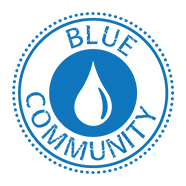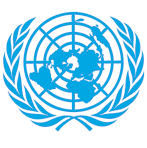
Resolution 64/292 adopted by the General Assembly of the UN on July 28, 2010.
The General Assembly of the United Nations
- Recognizes the right to safe and clean drinking water and sanitation as a human right that is essential for the full enjoyment of life and all human rights;
- Calls upon States and international organizations to provide financial resources, capacity-building and technology transfer, through international assistance and cooperation, in particular to developing countries, in order to scale up efforts to provide safe, clean, accessible and affordable drinking water and sanitation for all;
- Welcomes the decision by the Human Rights Council to request that the independent expert on human rights obligations related to access to safe drinking water and sanitation submit an annual report to the General Assembly,13 and encourages her to continue working on all aspects of her mandate and, in consultation with all relevant United Nations agencies, funds and programmes, to include in her report to the Assembly, at its sixty-sixth session, the principal challenges related to the realization of the human right to safe and clean drinking water and sanitation and their impact on the achievement of the Millennium Development Goals.
108th plenary meeting
28 July 2010
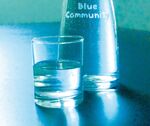
Water is a public good and not a commodity.
The UN resolution on the human right to water speaks of "safe, clean, accessible and affordable drinking water and sanitation for all." Ensuring this costs. So caring for water and water services also has monetary implications. Therefore, in most cases, access to drinking water is subject to a tariff, but this tariff must not exclude people from the basic supply of clean and safe drinking water. In extreme cases, where a person has no money at all, the human right to water presupposes that access to water is also guaranteed free of charge.
In no case should the basic supply of safe and clean drinking water depend on bottled water traded at market prices.
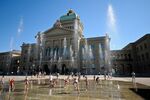
Blue Community promotes cooperation with public partners so that knowledge and experience remain in the hands of the state or accessible to the general public. Public thus means:
-
The state/local community has ultimate responsibility and ensures control over the water supply, even if it contracts third parties.
-
It protects the source and regulates its use. (Use is not left to the first or highest bidder).
- Water management is transparent and involves the community (local governance).
- If a cooperative or water committee is locally responsible for water supply (due to the weakness of state representation), the organizational form must do justice to the character of water as a public resource and must not exclude anyone from the basic supply.

The principles of the Swiss Blue Community are formulated positively; it is not about bans, but about expanding choices and forms of cooperation in the water sector:
Banning bottled water?
No bottled water is banned in any Blue Community existing in Switzerland. The public water supply is to be used as the cornerstone of the supply of drinking water. Bottled water should only be used where, for logistical reasons, pitchers/carafes do not work. In parallel, bottled water can be offered for purchase. Bottled water shall always be more expensive than the drinking water supply.
Prohibition of cooperation with private suppliers in the water sector?
Water supply always depends on cooperation with private suppliers. So it cannot be in any way about the prohibition of cooperation with private companies. However, Blue Communities deliberately promotes cooperation with public partners and actively prevents the know-how and control over technical facilities in the water sector from being monopolized in private hands.
It is not a prohibition, but the imperative to treat a public good also as a public good, it is an imperative to promote, strengthen and maintain the quality of the public water supply and an imperative of international solidarity in this area.

The Swiss water supply is largely in public hands and the access to clean and safe drinking water as well as a functioning wastewater disposal is almost completely guaranteed. Blue Community Switzerland uses this experience and makes it available to southern countries (in the form of partnerships and support for water projects). Blue Communities work in solidarity for the international promotion of an impeccable drinking water supply and wastewater treatment.
The four principles form the core of the voluntary commitment. Each Blue Community is free to commit to further points in the area.
The single Blue Communities are structured in Chapters (by region) and Clusters (type of organization), and coordinated by the OeME-Migration department of the Reformed Churches of Bern-Jura-Solothurn. It organizes an annual exchange meeting, advises organizations on their way to becoming a Blue Community and checks the self-commitment.
The Council of Canadians and the Canadian Union of Public Employees (CUPE) initiated the Blue Communities Project in 2009, in response to privatization efforts in the Canadian water sector.
At an European speaking tour of Maude Barlow, then President of the Council of Canadians, the fire for our water sprang over in Bern, where then City President Alexander Tschappat made the Swiss capital to become the first Blue Community outside Canada, together with the University of Bern and the local reformed church. The Blue Communities movement has grown internationally since with Paris, Berlin, Hamburg, Brussels, Los Angeles, and other cities and municipalities around the world going “blue.” Universities and schools, trade unions and companies, religious communities and faith-based groups have also adopted the principles that treat water as a common good that is shared by everyone and is the responsibility of all.
The Blue Planet Project was established in an effort to coordinate the Blue Communities on global level.
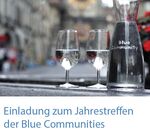
Each Blue Community commits with a self-commitment to the four principles of the Swiss Blue Communities and to their longer-term implementation through the affiliation to the network. In the spirit of mutual exchange of knowledge and experience, all Blue Communities participate in the annual exchange meeting and compile an annual activity report.

Unlike a label, the Blue Community voluntary commitment is not linked to a certification process. The self-commitment means that an organization makes publicly visible which principles it stands by, which principles guide its actions, and which principles it defends in case of conflict. With occasional contact and annual meetings, the coordination office ensures that the Blue Communities stick to their self-commitment and further develop their options for action.
Water has a fundamental material-spiritual meaning in the most diverse religions, which is visible in sacred texts, everyday rituals and special liturgies.
In the Judeo-Christian tradition, water is a gift of creation and a symbol of God's giving to us. In Christian baptism, this is expressed in the baptismal ritual to the triune God with water. As a negative contrast to this gift of grace and prophetic criticism, for example, the horror of having to pay with silver to get water appears in the lamentations of Jeremiah (Cl 5:4).
Finally, Revelation sees the vision of the world in which whoever thirsts can come and enjoy the water of life for free (Rev 22:17).
Because of the dramatic situation of people who are excluded from clean drinking water and a functioning sewage supply, and based on the religious background briefly described above, water is an important issue for the churches. Churches have actively campaigned against water privatization and for the human right to water. As an example, Catholic and Protestant churches in Switzerland, together with Catholic and Protestant churches in Brazil, signed an ecumenical water declaration in 2005 for water as a human right and public good.
